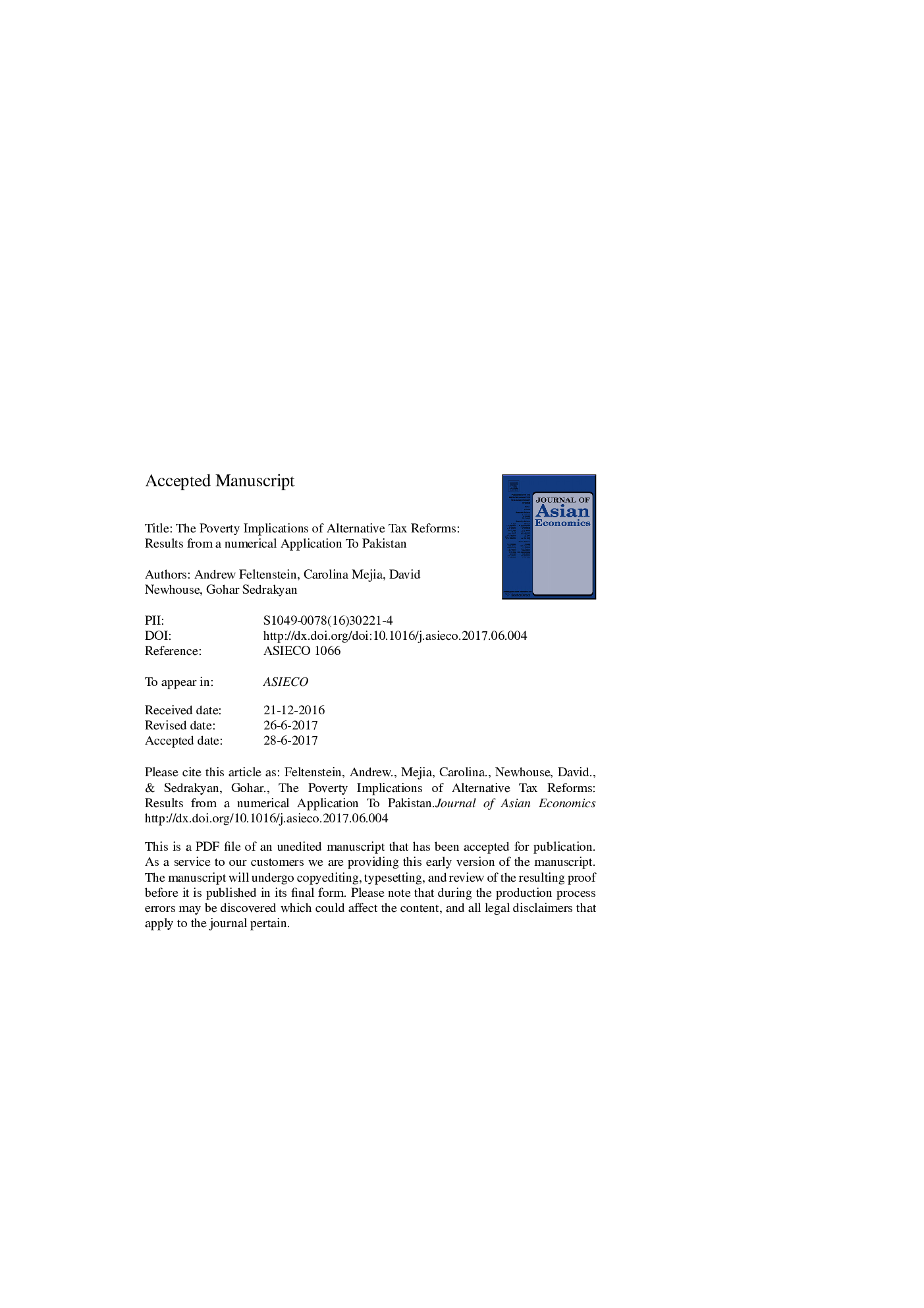| Article ID | Journal | Published Year | Pages | File Type |
|---|---|---|---|---|
| 5087135 | Journal of Asian Economics | 2017 | 42 Pages |
Abstract
This paper presents results from four simulations of the impact of potential tax reforms in Pakistan on poverty, shared prosperity, and inequality. The simulations are carried out in the context of a dynamic computational general equilibrium (CGE) model that incorporates endogenous tax evasion. The simulations link the CGE model to household survey data that is incorporated in a micro simulation model. The combined models suggest that equal yield increases in sales and corporate tax rates differ mildly in their impacts on consumption and poverty. Endogenously modeled tax evasion plays an important role in the results.
Related Topics
Social Sciences and Humanities
Economics, Econometrics and Finance
Economics and Econometrics
Authors
Andrew Feltenstein, Carolina Mejia, David Newhouse, Gohar Sedrakyan,
